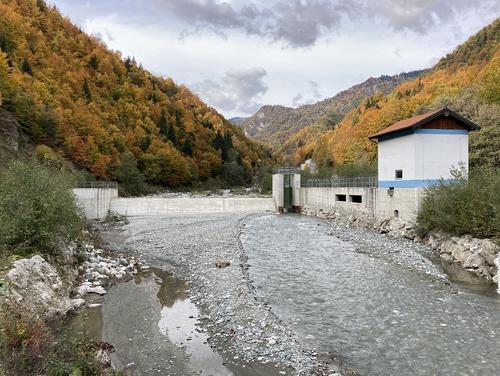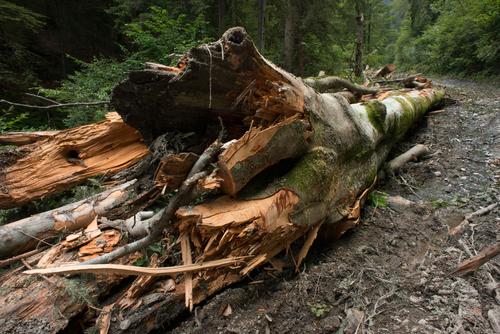Reduce, prioritise, restore: How to consume and generate energy to tackle the climate and nature crises.

Small hydropower plants have a particularly devastating record: little energy gain, great ecological damage.
© Ulrich Eichelmann
Centuries-old beech trees for the fireplace? Biomass from forests is only really sustainable in rare cases.
© Matthias SchickhoferBrussels, Radolfzell. Today EuroNatur released a first of its kind position paper detailing a new way forward regarding energy consumption, renewable energy and energy efficiency in the European Union.
The paper sets out a new vision that illustrates how the EU can jointly tackle the ecological and climate crises, by limiting the production of forest biomass and new hydropower and prioritising solar, wind and geothermal energy. This will also mean investing in energy efficiency in buildings and developing smart green grids thereby reducing current energy consumption.
The report published ahead of the discussions on a future EU Renewable Energy Directive, delineates a holistic, strategic and ecosystem-based energy approach that considers impacts on species, habitats and the climate.
“Over the next several months, a new Renewable Energy Directive will be up for review. We will be pushing for energy that works with nature and not against it,” says Gabriel Schwaderer, Executive Director at EuroNatur. “Our approach ensures that future energy installation can incorporate strategic planning and can give us a win-win for tackling both the climate and biodiversity crises. The way forward is clear, and now it is up to decision-makers to step in and make the difference.”
The approach considers:
- Determining the potential contribution of different renewable energy sources to the energy mix and assessing if the ecosystem has the capacity to sustain the production of those renewable energies, including the cumulative impacts that other human activities cause.
- Mapping to identify known potentially sensitive locations, locations that are not considered to have adverse implications for wildlife, and locations that are compatible with biodiversity conservation priorities.
- Undertaking Strategic Environmental Assessments for all renewable energy and network infrastructure plans – both for individual renewable energy sources or combined plans – to determine their appropriateness.
- Restoring and increasing the resilience of ecosystems and strictly protecting natural carbon sinks such as primary and old-growth forests, wetlands, peatlands, seagrasses and kelp forests.
The ecological and climate crises threaten the health of the planet, human livelihoods and biodiversity. Climate action must work with nature by phasing out fossil fuels and nuclear energy while prioritising renewable energies that can minimise impacts on nature and take into account nature’s ecological capacities.
“The Renewable Energy Directive will set the long term path for how the EU envisions its future energy systems,” says Bruna Campos, Senior Policy Manager at EuroNatur. “If EU decision-makers truly believe in a future that tackles both the ecological and climate crises, then this will require real political priorities so that in 2039, the EU is not scrambling to deliver half-baked measures and pretending they tried to achieve net-zero emissions”.
Contact:
Anja Arning, anja.arning(at)euronatur.org, +49 7732 927213
Bruna Campos, bruna.campos(at)euronatur.org, +32 4999 39341


